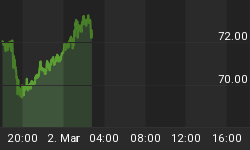It's wonderfully exciting to think about the potential for harvesting humans for their energy--an idea made famous by the movie The Matrix. But leave it to science to ruin a perfectly good movie. As it turns out, humans are one of the most inefficient power sources available, and our vital energy isn't going to be powering the world--or the evil machines--any time soon.
But we understand the fascination with this human battery concept.
The search for cleaner energy, limitless energy, and cheaper energy has reached a fever pitch, and the great minds of science are exploring all avenues of how to generate this premium energy. In their quest to discover new ways of supplying energy to the world, we stumble on some pretty far out ideas--and Hollywood has given us some of the more colorful ideas.
Some of these theoretical ideas have even inspired real-life developments, which has given rise to the sensible question, is this even possible?
In the Matrix, machines have successfully overthrown their masters, and have harnessed the energy of humans to power their world. Rows and rows of humans are seen in tanks, connected to hoses to siphon off whatever energy a human body could create. The humans, unaware of their situation, are in a dream state, living their life solely through their imagination.
Morpheus, Laurence Fishburne’s character in the movie, explains it thusly:
"The human body generates more bio electricity than a 120-volt battery and over 25000 BTUs of body heat. Combined with a form of fusion the machines had found all the energy they would ever need." Related: Uber To Offer On Demand Employment
And that sounds great! The part about the battery output, not the part about the evil robots using you as a power source. The preoccupation with battery advancements is understandable.
Science continues to work on coming up with a better battery. All types of batteries today--including both ones that we use today and ones that are in development--have at least one major drawback, creating a kind of Goldilocks scenario. The material is expensive to mine. The material is expensive to recycle. The battery doesn’t work in the cold. The battery doesn’t last very long in between charges. The battery can spontaneously explode. The battery takes too long to charge. The battery is too big. The list is seemingly endless--unfortunately so for the transportation sector, which has been desperately waiting for a mass adoption of electric cars, busses, vans, semis, and planes.
It’s no wonder why the possibility of the Matrix proposition holds the interest of many, robot masters aside.
But no worries. As it turns out, those evil machines can’t take over the world using yourself against you. And here’s why some have called this particular battery idea utter nonsense.
As it turns out, humans suck at being batteries, even while we are in a evil-machine-induced coma and have nothing else to do except for imagining our way through life. Go ahead and add that to your list of things you suck at.
I guess we don’t put out nearly as much power as Morpheus suggested. Lies, all lies!
Morpheus said the net energy output of a human is 315 W of power. At 7.7 billion people on the planet, that would be a total energy output of 2,425,500,000,000 W. Or 2.4255 terawatts. But that’s just not true. Humans are lousy energy converters, and estimates are that humans can convert fuel (food) into energy at a 25% efficiency rate.
Source: https://personal.ems.psu.edu/~radovic/Chapter4.pdf
That ranks us somewhere above the fluorescent lamp and under the engine of a car. Frankly, we expected better. Related: Three Stocks To Watch Ahead Of Earnings Season
Real science--as opposed to Hollywood science--suggests that all the people on the planet--combined--would generate far less, no more than 0.6 terawatts on a best-case scenario. We’re not sure whether we should be relieved that this means the motive for using us as batteries is unremarkable, or whether we should be concerned that someone has already investigated how much power humans could generate.
The problem with the conversion and why we’re not so good at it is because human bodies need energy too. We need food. Energy in, energy out. But while we consume a significant amount of food even in our resting state, only 25% of this is converted into energy, in the form of heat. And that’s assuming these machines have found a way to capture that heat and use it as energy.
Even so, work on the human battery idea is moving forward, in an attempt to get around the battery bottleneck that is holding up electronic advancements. We’d like to think these experiments will not involve evil machine overlords.
The Matrix 4 has just been announced, and science aside, we are expecting even more crazy energy ideas this go around.
















